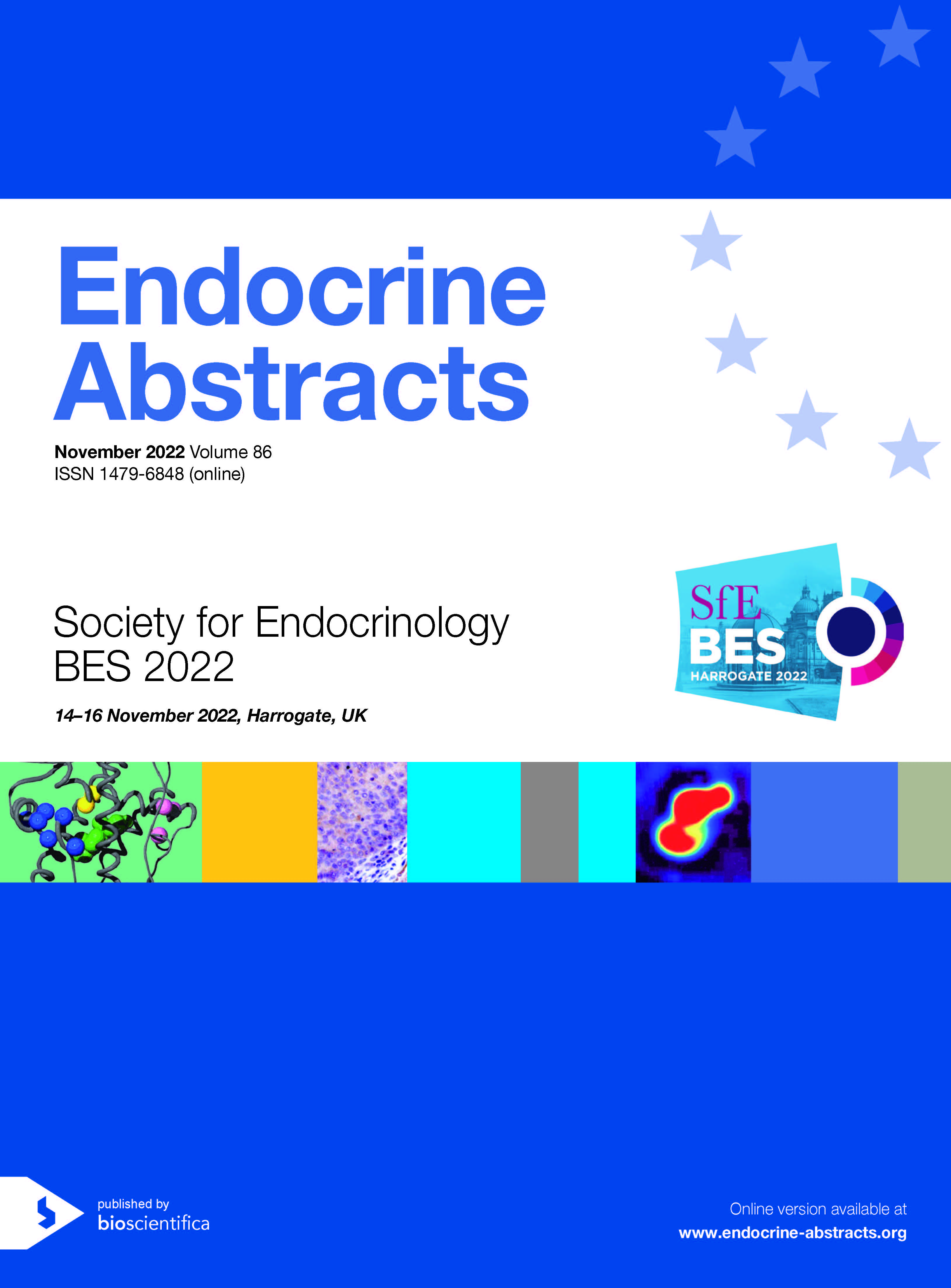Searchable abstracts of presentations at key conferences in endocrinology

Society for Endocrinology BES 2022
Harrogate,
United Kingdom
14 Nov 2022 - 16 Nov 2022

SfE BES is returning to Harrogate in 2022. Join with endocrine specialists from across the UK and beyond for the Society for Endocrinology's flagship meeting.



